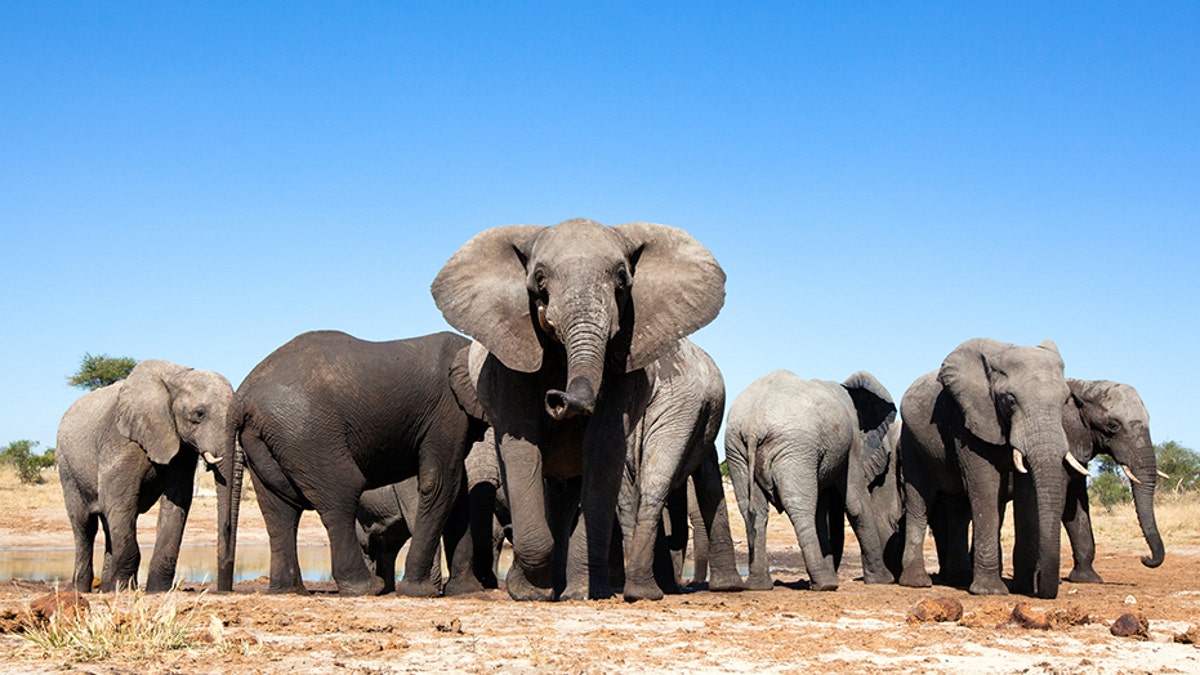
Elephants at a waterhole (2630ben)
A new study shows that mankind has killed off large mammals at an exceptionally fast rate, a trend that appears to be speeding up over time.
The study, published in the peer-reviewed journal Science, shows that species that have gone extinct, such as wooly mammoths, saber-toothed cats and giant sloths have gone extinct as a result of human impact. "If the current trend continues, terrestrial mammal body sizes will become smaller than they have been over the past 45 million years," the study reads.
Co-authored by Felisa Smith, Rosemary Elliott Smith, S. Kathleen Lyons and Jonathan Payne, the study finds that largest mammal in 200 years may be the domestic cow, if the trend continues. The study also notes that the average weight of a mammal would drop sharply to just 6 pounds, down from 37 pounds currently and 216 pounds 125,000 years ago.
CALIFORNIA PHOTOGRAPHER CAPTURES POD OF KILLER WHALES ON CAMERA: 'I WAS IN UTTER AMAZEMENT'
"We demonstrate that size-selective extinction was already under way in the oldest interval and occurred on all continents, within all trophic modes, and across all time intervals," the study's abstract reads.
The largest land mammal living today is the African bush elephant, which can grow up to 13-feet tall and weigh as much as 23,000 pounds. The largest extinct land mammal is the Paraceratherium, a hornless rhioceros, which was approximately 15.7-feet tall, 24-feet wide and weighed between 33,000 and 44,000 pounds.
“We looked at the entire fossil record for 65 million years, in million-year increments, and we asked the question, ‘Is it ever bad to be big?’,” said Smith in an interview with The Washington Post. "For 65 million years, it didn’t matter what size you were.”
Another surprising find from the study is that the average size of a mammal on the African continent was already 50 percent smaller than other continents, 125,000 years ago.
Speaking to USA Today, Smith said they suspect this is because humans already influenced the size and diversity of mammals living in Africa.
Follow Chris Ciaccia on Twitter @Chris_Ciaccia








































